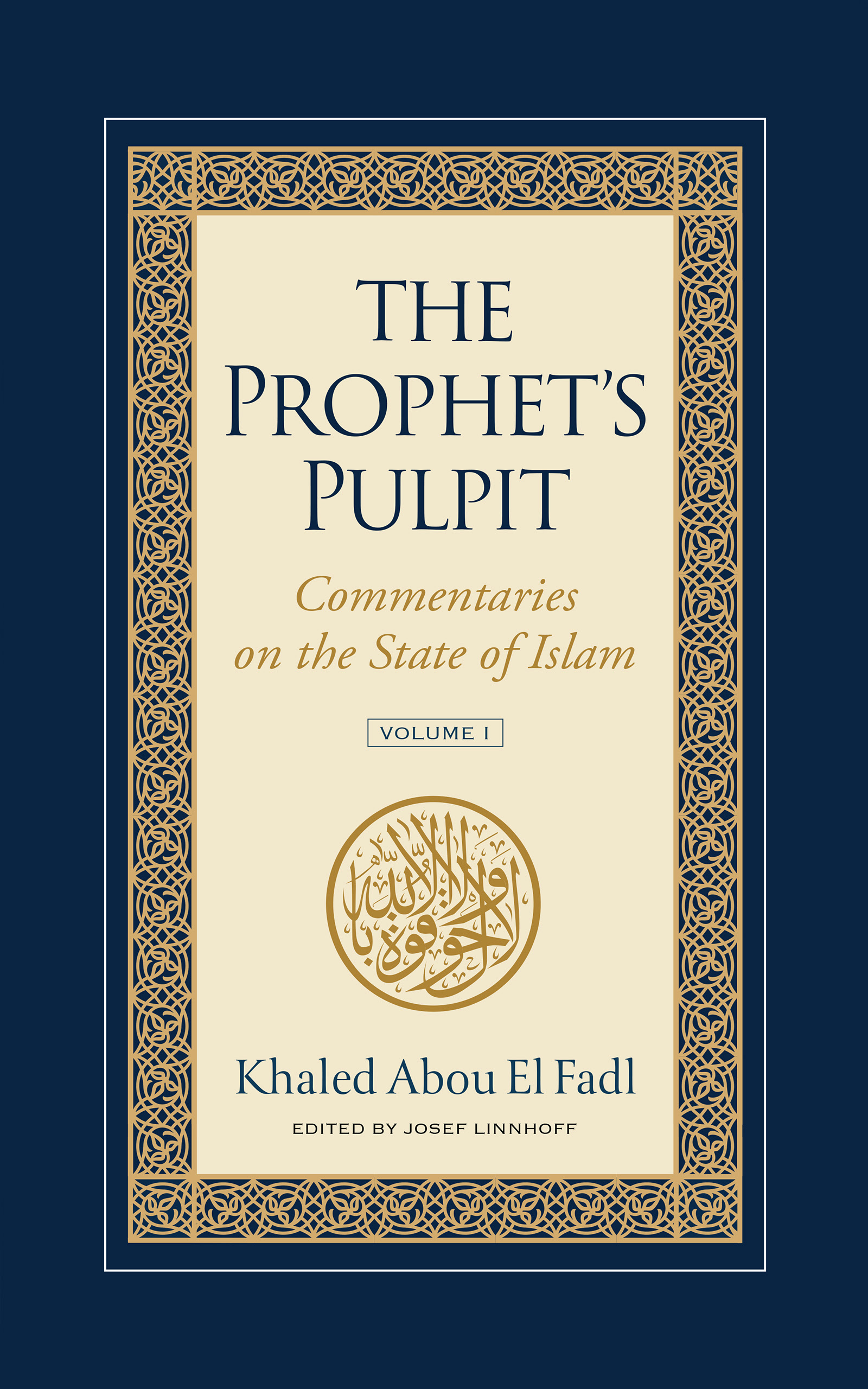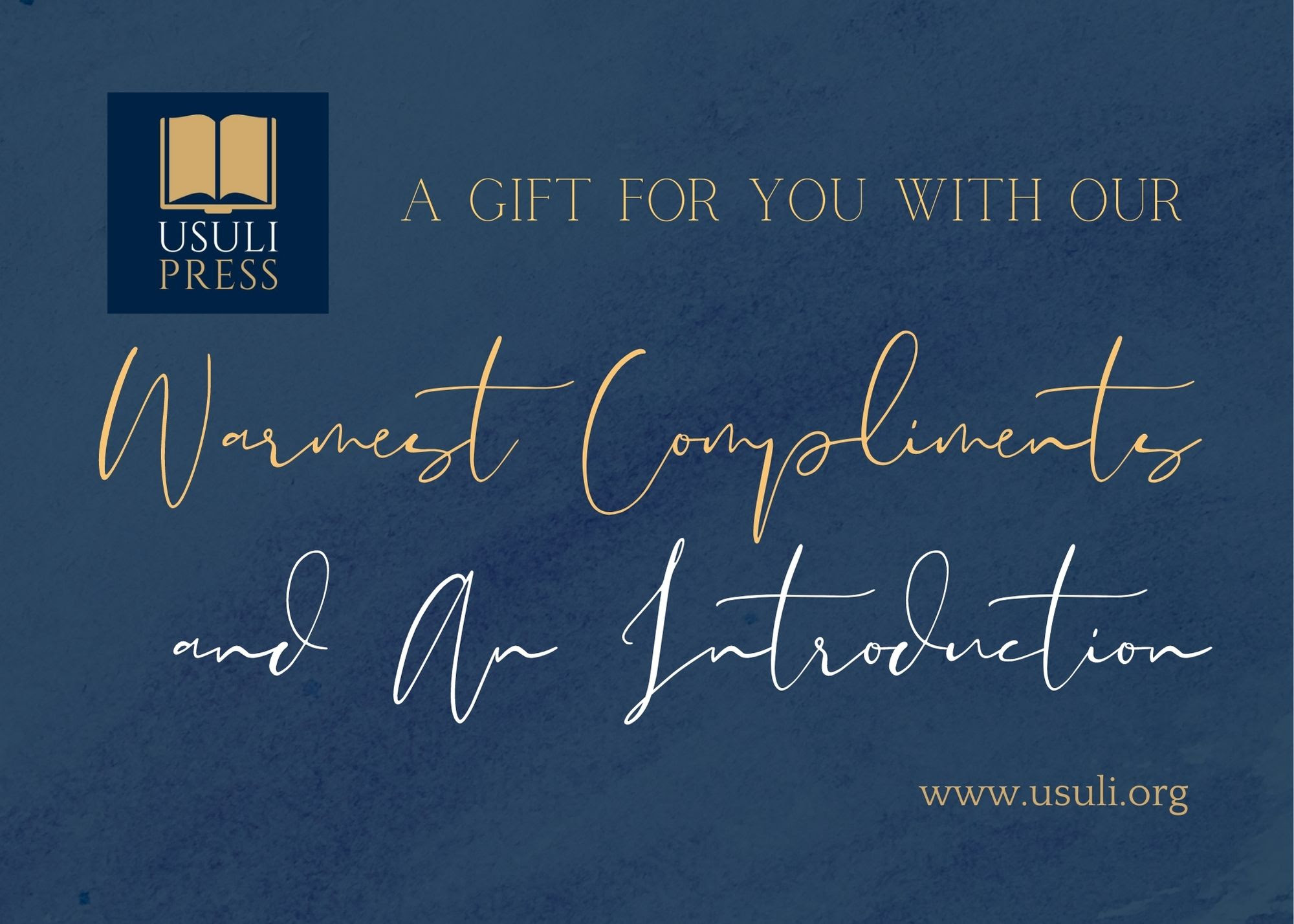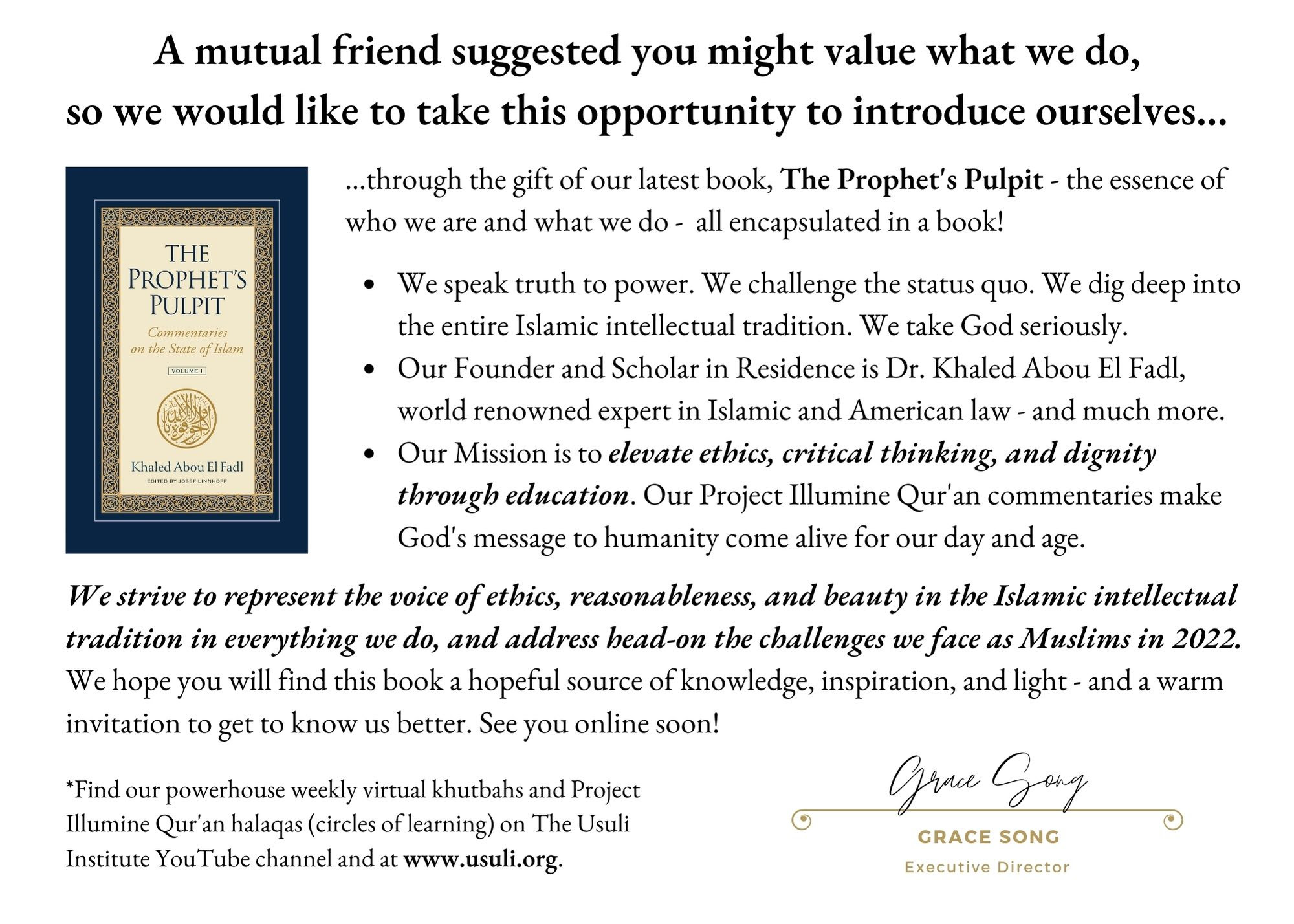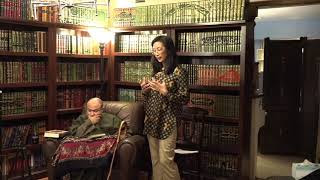I pray you are well! As we begin winding down the less than two and a half months remaining of this year, I am absolutely shocked and stunned
by the swift passage of time. I thought we just started 2022, and we are already on the doorstep of 2023. I pray that we all make every day and moment count insha'Allah (God
willing)!
At the beginning of the last halaqa (Surah 9: Al Tawbah, Day 4) in my introduction, I addressed a misconception that I noticed was appearing
in various comments on our YouTube channel, as well as in comments directed to me personally in emails - that implied, inferred, or assumed that in my role as a visible Muslim woman speaking
alongside the Shaykh - while NOT wearing a hijab - that I was choosing to speak without a scarf while fully knowing that I was committing a sin by doing so. In other words, it was imputed that I
understood that the hijab is mandatory for women and that despite my awareness of this "fact," that nevertheless, I chose to disregard it for my own personal reasons, placing my own preferences
above the "clear directives" of God. Further, while it was nice that a woman can speak intelligently about her faith, nevertheless, all of that intelligence is negated by the sin of not wearing a
scarf. It would seem "obvious" why Muslims would not be willing to accept knowledge from a woman without a scarf. I read a couple of examples of such comments.
For those who may not have seen my response, I want to highlight and reemphasize some of the points that I made to clarify and double-down on
my position. First and foremost, I do NOT believe that I am committing a sin by NOT wearing the hijab. In other words, I am NOT somehow choosing a personal preference or having a personal comfort
supersede a "divine command." In a nutshell, from my own due diligence, I do NOT believe the Islamic legal evidence supports a clear-cut, normative directive from God for women to wear a
head-covering in all times and places. In my own assessment and understanding, I do NOT believe that the evidence indicates that it is preferable or even more commendable for women to wear a
hijab in the time and context in which I live. So for me in my own agency as a human being with my own relationship with God, I am more than comfortable saying that I am representing my
understanding of God's will and exercising my right to determine that the hijab is not mandatory or incumbent UPON ME as a matter of faith. I do NOT believe I am doing anything wrong by NOT
wearing a scarf, and in fact, I believe that God's directive for modesty, which is a directive for both men and women, has a much more substantive meaning: it is all encompassing and most
importantly, governs our conduct, spirit, our orientation, and how we embody the divine role of being an ambassador of God's most beautiful, precious, and consequentially significant
faith.
The topic of hijab in my experience has always made to be one of the most "pressing" issues for women and converts in particular. Choosing to
change everything in your life to convert to a new religion takes a lot of work, research, prayer, reflection, and bravery. For women, to change all of that and then ALSO dramatically transform
one's own physical appearance, identity, and daily practices by committing to wearing a hijab every day also requires the same. As a convert, the hijab issue was presented to me as a matter of
piety. Sure, I could NOT wear the scarf, but that made me a lesser Muslim. Who wants to convert and be a sinner from the get go? So, I approached this issue as I approached the other matters of
theology and faith in my conversion - from a perspective of evidence, questioning, reasonability, and knowledge. I tried to understand what God meant when God called for modesty, and if the
headscarf was a necessary part of the equation.
When I first met Dr. Abou El Fadl, the hijab was one of my burning questions. Did I really need to wear it? Is it true that this is a
mandatory requirement of the faith and a clearcut directive from God? Thankfully, many others had the same question, so I had the opportunity to learn as Dr. Abou El Fadl shared his knowledge,
inquiries, and evidence with others over many years and many circumstances. For those who have a serious desire to engage this learning, here are some important references:
1. A four-part halaqa on The Hijab: The Issues and the Evidence. Available on the Usuli
SoundCloud channel. This is where you get into the nitty gritty details. Shaykh lays everything out so you can come to your own conclusion. Yes, the sound quality is not great because it was
recorded on audio-cassette tape from 1996 and then was converted to digital format. Nevertheless,the content is gold, and remains just as powerful today as it was back then - if not more so.
Available at www.soundcloud.com/usuli.
2. A wonderful exchange of emails and a fatwa by Dr. Abou El Fadl on this issue of hijab on the www.searchforbeauty.org website, the online archive of many of Dr. Abou El Fadl's
works. You can find the Hijab Discourse here. This letter in particular was
instrumental in Shaykh taking the time to re-engage the issue: https://www.
3. In one of Shaykh's most important, must-read books, The Search for Beauty in Islam: A Conference of the Books, Shaykh discusses this
issue at length in his chapter entitled, "Corrupting God's Book." He discusses the issues of hijab, 'awra, and khimar in
several places, so you can find those references in the index if you have the hard copy of the book.
4. Most recently, in the Project Illumine halaqa on Surah 24: Al Nur (Day 3), he discusses the verse 24:31, the
many issues around it and the understanding of khimar around the one hour mark, give or take. The whole discussion is amazing. For me, once again, this issue is one of modesty, and I understand
from all that I have learned is that modesty, from an Islamic legal perspective, is contextual. Shaykh discusses this in the resources I have listed here and elsewhere.
I emphasize that there are many compelling and important personal reasons why a woman may or may not choose to wear a hijab. However,
personal reasons are distinct from what the Islamic legal tradition allows according to learned jurists. It is simply NOT true that there is a consensus ('ijma) on the matter of women wearing
hijab. Shaykh points out in his comments after my introduction that there are very nuanced and complicated juristic opinions on the concept of consensus ('ijma) itself, that modern Muslims are
wholly unaware of. To say that there is consensus about hijab among jurists only calls attention to one's own ignorance about jurists, the Islamic legal tradition, and the notion of 'ijma, not to
speak of ignorance about opinions on hijab. But what do you do when the vast majority of Muslims, especially men who have no knowledge or training in Islamic law in particular, like to insist
that they know better? Education and more of it.
I have spoken about my own journey and my own experiences with the hijab on several occasions, and there are short excerpts on our YouTube
channel where Shaykh and I talk about the hijab. Here is one:
Here is another from the Los Angeles halaqa days when we would meet once a month and my intro's were much longer (sorry! kinda cringy when I
watch it back again!):
I believe that it is every woman's right to make her own determination about wearing hijab, and that it is between her and God. And I must be honest that while I choose not to wear the scarf, I do like being able to visually see who is a Muslim and extend my salaams in solidarity with those Muslim women. However, what I take issue with is being made to feel "lesser" by other Muslims because I do not wear the scarf, or when I see converts who are told that there is absolute consensus on the mandate to wear a scarf. Or worse, that wearing the scarf is a requirement for becoming Muslim. This is simply a case of making the halal (not wearing a scarf) a haram, for which the harm can be immense suffering. It is worse from my perspective when people then try to philosophize the suffering by saying that THIS is somehow what God wants (the suffering) and how by wearing the scarf, a woman is somehow proving her willingness to sacrifice for her faith, as if wearing a scarf is the right sacrifice to prove piety (as opposed to something else on a higher order of priority...)
As I have said, I believe there is more than sufficient legal evidence to support NOT wearing it in America, and thus, my own decision to do so. I believe we must be Ambassadors of our faith, and as we have learned in the Project Illumine halaqas, in everything we do, we should invite people to the beauty of God, Islam and our most incredible message of light that we were blessed to receive. More important, there are priorities. God will settle the differences among us, hijab among them, on the Final Day. Until then, we should be more concerned with issues of ethics, justice, love, beauty, and service. We should not judge or silence women either because they wear a scarf or because they don't. There are many women who have written to thank me for speaking in public without a scarf because they have been made to feel as if they have no voice in a Muslim space as a hijab-less woman. As a Muslim, a woman, and a human being that strives to pursue the divine path, I believe we are each responsible for ourselves before God, and God has so graciously given us the tools - heart, mind, and soul - to discover, question, navigate, and testify as to what is the most beautiful path before us that will please our Lord. May Allah guide us always to the best path, with or without a scarf.
THE "SHARE WITH A FRIEND" CAMPAIGN!!



Also, if you know Muslim journalists, academics, activists, politicians or influencers that would benefit, definitely let me know so we can send them a copy as well! May God bless our collective efforts!
PERPETUAL TRIBUTE TO ALL OF OUR BELOVED DOGGIES
To honor the loving memory of Oso, Baby and all the other beloved dogs we have had the pleasure of sharing life with, I will leave this link here, in hopes that Muslims will one day be at the forefront of loving, caring, and advocating for these most blessed and divine creatures. For more of Dr. Abou El Fadl's writings and views on dogs in the Islamic tradition: https://www.
*****
Looking forward to today's khutbah and the continuation of our engagement with Surah 9: Al Tawbah (Day 5)! May Allah guide us to the best way always! Hope to connect with you online soon insha'Allah (God willing)!
Grace


